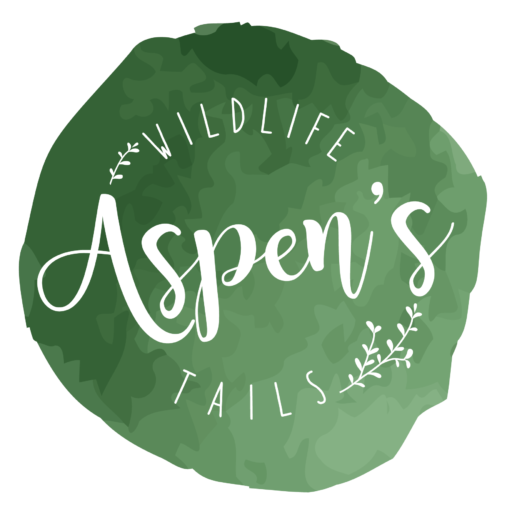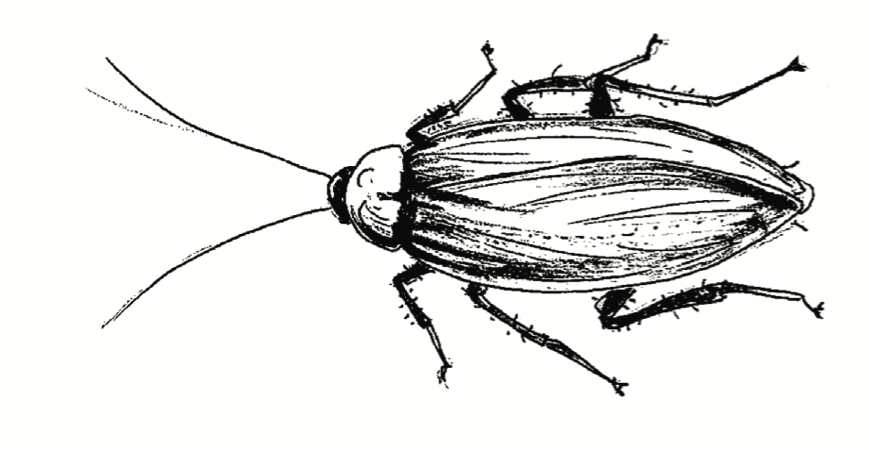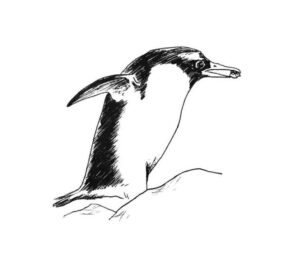Aspen and her little brother, Jack, crawled commando-style on their bellies, through the tall grasses of the backyard; they slowly approached their target. A nest of bunnies in a small divot in the ground, lined with rabbit fur and grass lay straight before them. Jack’s dog, Vader, found the nest the day before and Jack was worried the momma bunny would be too frightened to return. Jack texted his big sister, Aspen, for help; she was an intern at a wildlife rehabilitation center and frequently took Jack along for the ride on her adventures. Whether it was putting baby birds back in nests, capturing injured animals, or releasing animals back into the wild, Jack was always ready and willing to help. Aspen stopped by after getting Jack’s texts. She knew the dog did not touch the baby bunnies, so there was no need to remove them. Instead, Aspen placed a long piece of yarn from one side of the nest to the other and left. “There is an excellent chance momma is still in the area, Jack. She only comes and feeds the babies at dawn and dusk. If she comes back to feed them, the yarn will be disturbed, and we will know she has been back and is still caring for them. We will check tomorrow, ok?” Jack nodded excitedly.
Now they slowly crawled on their bellies until they were close enough to see that the yarn was moved! They slowly backed away so as not to disturb the nest. Once back in the house, Aspen said, “See Jack, I told you they’d be okay. Momma bunny has been there to feed them, so as long as you walk Vader on a leash out front, they should be grown and out of the nest in a month or so.”
“Why can’t I touch them, Aspen?” Jack asked.
Aspen replied, “Well, do you remember the story of Jack and the Beanstalk?” Jack nodded. “You’re the GIANT, Jack!” He looked amazed that at the mere age of eight and just under four feet tall, he could be a giant. Aspen explained, “To those bunnies, you’re a giant; they can feel you walking towards them; like a T-Rex, you make the ground shake. You have a loud booming voice, a mouth full of teeth and strong hands. They don’t know you aren’t going to eat them. You could scare them to death. How would you feel if a giant, one hundred times your size walked down the street, lifted the roof of your house and picked you up from your bed?” Jack grinned thinking that would be cool!
“I wouldn’t be scared, I’d just squirm out of his hand and run like the wind!” he bragged. Jack prided himself on how fast he could run. He ran the fastest mile of all the kids in his grade. Aspen smiled and laughed at her goofy baby brother.
“Listen kiddo. I have to get to the center; lots of mouths to feed you know.” She grabbed a grilled cheese sandwich from her mom as Jack sat down to eat. Vader, his black lab waited patiently under the table for scraps Jack was sure to drop. “See ya later, mom.”
“Bye, sis, thanks for your help,” Jack mumbled through his first bite of grilled cheese.”
Fifteen minutes later she pulled into the parking lot of the wildlife rehabilitation center where she had started as a volunteer when she was fifteen. She spent that summer taking care of baby opossums and volunteered there ever since. Now a sophomore in college, Aspen was studying anything and everything that had to do with nature, wildlife and the great outdoors. School was out for the summer, and she was one of four interns that worked full time and shared a small room with bunk beds on the second floor of the center. As she entered the lobby of the Nest, which was the nickname of the center since it housed all the baby animals, Kim, the director, greeted her, “Hi Aspen, how’d it go?”
“Great, the yarn was moved!” she replied with a smile. She knew Kim would be relieved not to be admitting any more baby bunnies. They already had so many. It took their best animal caretaker, Nicole, till lunchtime to feed all of them. Aspen bee-lined through the front of the hospital, to the back room, where her favorite animals were housed, the opossums. Black metal cages stacked three high lined each wall. Some cages had a lot, while others housed just one. This was determined by how they were brought in. Most baby opossums brought to the center were orphaned after their mothers were hit by cars. Often they were brought in with all their siblings, sometimes up to thirteen still alive in their mother’s pouch. But they also got the single orphaned opossum that fell off their mothers and got left behind.
It had been a very busy spring; they had taken in over a hundred baby opossums. The staff had spent many hours tube feeding them, but now they were old enough and transitioned to chow and formula, which they ate from a dish. Aspen enjoyed cleaning the cages, weighing them and making sure that they had all the fresh food they needed. It was quite a task, as there were forty or so cages! She didn’t care. She loved the opossums. That first summer when she was a Junior Volunteer she had fallen in love with the strange marsupial. They would grip torn up newspaper in their rat-like tails and parade around their cages holding it up over their backs like it was a precious treasure. They climbed upside down along the bars of the cages like Spiderman. Being nocturnal, they napped most of the day in their hammocks with their brothers and sisters, only rising to eat from the fresh bowl of the odd concoction that they were fed.
As Aspen cleaned the cages, she removed the dirty papers and placed new ones in the bottoms of the cages. Cleaning cages was always easier when the opossums were napping in their hammocks and not dancing around on the papers. Occasionally there was a grumpy opossum that would hide and hiss as she worked. The fierce crocodile grin they made always made her smile! After cleaning their cage, she placed a dish of fresh food for them inside. Grapes were cut in half, but the opossums still looked like they had huge gumballs in their mouths.
When she was done and cleaned up after herself, Aspen grabbed the key to Trinity’s enclosure, clean blankets, and a cup of night crawlers then headed outside. Aspen considered Trinity her favorite education animal. They were friends since the first day Trinity came to the center. A predator injured her when she was about the size of a kitten, which resulted in the amputation of her front left leg. Having only three legs, she could not be released to the wild, so she lived at the center and was spoiled to death by staff and volunteers.
As Aspen unlocked the padlock on Trinity’s door, she called out, “Good afternoon sweetheart.” She knelt down in front of Trinity’s igloo shaped doghouse and peered into a pile of sheets and blankets. Somewhere in there was a cross-eyed little opossum, probably curled up just like a cat. Slowly, Aspen pulled the bedding out of the igloo, until- “There you are! How are you today baby?” Trinity blinked and rolled to her side, standing ever so slowly. “I have something yummy for you today, a special treat!” Aspen said while dangling an earthworm in front of Trinity’s mouth. It only took her a second to smell it and snatch it up. She wrestled with the worm with her one good arm as she chomped away. Gone in a jiffy, she was sniffing around for more!
As Aspen changed the bedding and water, she fed Trinity a few more worms. “Those are yummy, aren’t they Trinity? Tomorrow I’ll try to bring you some cockroaches; I think Rob’s been trapping a few in the turtle room. We all know how you like them.” With the worms gone, Trinity buried herself amongst the sheets, nosing her way through to the middle, and was fast asleep. Aspen secured the lock behind her and went to visit another friend at the center, Indigo, the blue jay.
“Hi, Indy!” she said as she approached the enclosure. “How are you today?” Aspen asked while unlocking the door. Indy beeped and whistled while sidestepping back and forth on the branch next to Aspen. The blue jay bowed his head, allowing Aspen to stroke his neck. Indy came to the center imprinted; he was overly friendly towards humans. A retired woman found him after a storm and tried to raise him herself, not knowing how intelligent birds of the Corvid family were. Indy became so used to her that when she released him, he stayed on the lamppost by her front door and landed on her head whenever she came outside. Not wanting her company to receive this welcome, she brought him to the center where the raptor staff was training the bird to be an education animal. The staff didn’t know the bird’s gender, so they called him Indigo, Indy for short, assuming he was male. When he first arrived at the center, he lived inside where he quickly learned to imitate the microwave beep and telephone ring. He was moved outside in hopes that he would mimic other birds rather than electronics.
Suddenly Indy hopped on Aspen’s head making a series of clicks, beeps, and whistles before he flew off . The staff called these his R2 noises, as they resembled the beeps of the beloved Star Wars character, R2-D2. Aspen set down a toddler, shape-sorting toy she grabbed for him. The staff frequently brought him new things to explore to keep him from getting bored since Corvids are one of the most intelligent bird families. He landed on the ground and approached it cautiously, pecking it a few times, before grabbing a yellow triangular piece and hopping off quickly to the corner of the aviary to hide it with his other treasures: a shiny teaspoon, a plastic water bottle lid, and a twig. Aspen had to learn Indy’s quirks the hard way. One of her first days feeding him, she brought the containers of food out with a spoon to fill his dish; setting it down on the ground while she cleaned, only to have him sneak up behind her and steal the spoon. He also enjoyed flying extremely close to her head, which Aspen referred to as flybys. Their friendship had grown, and he trusted her now and hopped on her head and allowed her to pet his neck when he was in a good mood. Once done with all her tasks, she said “Audios,” and left him with the new toy.
Aspen spent the remainder of the day inside, feeding birds and manning the intake window. Luckily it had been a slow day, and not many new animals had been admitted, but she was still tired from standing on her feet all day feeding baby birds. Being a momma bird was hard work, from sun up to sun down collecting food for her babies.


